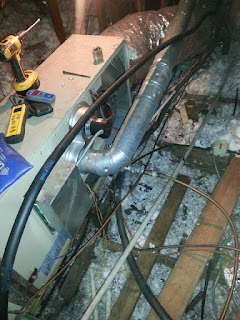Basic Gas Furnace Safety Tips
Natural gas is also the most popular type of home furnace, accounting for nearly half of all residential furnaces in the US. Gas furnaces are great if you’d like a more cost-efficient and even heating system, but they also come with their own set of safety issues.
Here’s are ways to keep your gas furnace functioning safely, and when it might be best to contact a professional.
Schedule a furnace cleaning and check-up to be performed yearly by a technician. Request that s/he checks for cracks in the combustion chamber, as these cracks could allow carbon monoxide to leak into your home. This should be done before winter starts.
Change the air filter regularly. Dust particles can build-up on the furnace’s air filter and reduce efficient airflow and heating capabilities, as well becoming a fire-hazard or furnace failure potential in extreme instances of neglect. The air filter is usually located inside the front cover of your furnace, and should be changed before the winter season starts, and at least once every 1-3 months during regular use.
Don’t close off more than 20% of the furnace registers in your house. This can cause unnecessary heat build-up and affect the efficiency. Make sure to avoid obstructing registers as well, and keep them free of lint, dust, and pet hair by vacuuming them at least once a month.
Don’t store anything flammable or combustible near or around your furnace to avoid a furnace fire.
Keep the area around your furnace clean and unobstructed.
Install a carbon monoxide detector in your home,and check to make sure it’s working properly at least once a month during the winter season. Gas furnaces have a risk of carbon monoxide poisoning if they’re not functioning properly, but having a detector installed can help you stay on top of risks.
If your pilot light seems to go out often, make sure there aren’t any drafts preventing it from staying lit. If pilot light issues persist and it seems that the issues stem from the ignitor (or the pilot downright refuses to relight), call an expert.
If you detect a gas smell or suspect other gas feed or valve issues, call a professional.
Residential gas furnace repair
No comments:
Post a Comment